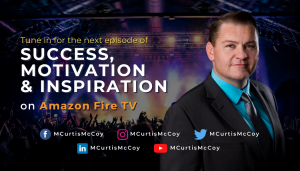Starting to date again after a divorce or emotional trauma can feel overwhelming. Whether you’re stepping out of a long-term relationship or healing from an emotionally challenging chapter, the idea of putting yourself out there might spark a mix of excitement and apprehension. It’s completely natural to feel unsure about when or how to start dating again.
The good news? Dating after trauma or divorce isn’t just about finding a partner—it’s about rediscovering yourself, embracing your growth, and taking a brave step toward a brighter future. This article will guide you through the emotional, practical, and personal aspects of re-entering the dating scene, so you can approach it confidently, clearly, and purposefully.
I. Recognizing When You’re Ready
Before diving back into dating, it’s crucial to ensure you’re emotionally prepared. Readiness isn’t about external timelines or societal expectations—it’s about how you feel within.
A. Signs You May Be Ready to Date Again
- Curiosity about companionship: If you find yourself feeling genuinely excited or curious about meeting new people, it may be a sign that you’re ready.
- Diminished emotional triggers: You notice that memories of your past relationship or trauma no longer provoke intense sadness, anger, or resentment.
- Desire for connection: Rather than filling a void, your interest in dating stems from wanting to share your life with someone in a healthy way.
B. Signs You May Need More Time
- Lingering resentment or anger: If thoughts of your ex or past hurt still consume your mind, it might indicate the need for further healing.
- Fear of vulnerability: Feeling anxious about opening up to someone new could mean you’re not emotionally ready yet.
- Escaping loneliness: If your interest in dating is driven by avoiding solitude, it’s worth pausing to cultivate a sense of independence first.
C. Giving Yourself Permission to Take Your Time
There’s no “right” timeline for dating again. Ignore societal pressure to move on quickly or compare your journey to others. Allow yourself the space to heal and grow at your own pace, and remember: it’s okay to prioritize your well-being.
II. Building Confidence Before Jumping In
Re-entering the dating world often requires a boost in self-esteem. Taking time to reflect, heal, and build confidence will empower you to approach dating from a place of strength.
A. Reflecting on Lessons From Past Relationships
Every relationship, even the challenging ones, teaches us something. Reflect on:
- What worked well and brought you joy?
- What didn’t align with your needs or values?
- What boundaries do you want to establish in future relationships?
B. Rebuilding Your Self-Esteem
- Self-care practices: Invest in activities that make you feel good—whether it’s exercising, taking up a hobby, or indulging in spa days.
- Positive affirmations: Replace negative self-talk with empowering affirmations like, “I am deserving of love and respect.”
- Celebrate growth: Acknowledge the strength it took to overcome your past challenges and remind yourself of your worth.
C. Preparing for Vulnerability
Opening up to someone new can feel daunting, but vulnerability is key to forming genuine connections. Remind yourself that vulnerability is a strength, not a weakness. Prepare for moments of discomfort, and know it’s okay to take things slowly.
III. Practical Tips for Entering the Dating Scene
When you feel ready, taking a practical approach to dating can make the experience more enjoyable and less intimidating.
A. Setting Clear Intentions
Before dating, ask yourself:
- Are you looking for casual companionship, a serious relationship, or just exploring possibilities?
- What qualities are you seeking in a partner? Clear intentions help you navigate dating with purpose and ensure you’re on the same page with potential matches.
B. Choosing the Right Platforms
- Online dating apps: Apps like Bumble or Match cater to different preferences and age groups. Choose platforms that align with your intentions and comfort level.
- Community events and meetups: Attend social gatherings, workshops, or hobby groups to meet people organically.
- Networking through friends: Let your trusted friends know you’re open to meeting someone—they might have great recommendations!
C. Taking It Slow
There’s no need to rush into exclusivity or commitment. Focus on forming meaningful connections and enjoying the process of meeting new people. Remember, dating is about quality, not quantity.
IV. Navigating Emotional Challenges
Even with the best preparation, dating after trauma or divorce can bring up emotional hurdles. Knowing how to navigate these challenges will help you stay grounded.
A. Addressing Emotional Triggers
Dating can sometimes resurface past pain or insecurities. Here are ways to handle it:
- Mindfulness practices: Stay present during dates rather than letting old memories cloud the experience.
- Journaling: Write about your feelings to process and release any lingering emotions.
- Positive reframing: Remind yourself that every new interaction is an opportunity to rewrite your story.
B. Rejection as Redirection
Rejection is an inevitable part of dating, but it doesn’t define your worth. Instead of viewing rejection as failure:
- See it as a redirection toward someone better suited for you.
- Use the experience as a chance to reflect and grow.
- Remember: the right person will value and appreciate you for who you are.
C. Seeking Support When Needed
Healing doesn’t have to be a solo journey. If dating feels overwhelming:
- Lean on trusted friends or family for encouragement.
- Join support groups with individuals who understand your journey.
- Consider therapy to work through lingering fears or challenges.
V. Embracing the Journey
Dating is as much about personal growth as it is about finding a partner. By approaching it with an open heart and a positive mindset, you can turn the process into a rewarding experience.
A. Redefining Success in Dating
Success doesn’t necessarily mean finding “the one” right away. Instead, it can be:
- Learning more about what you want and don’t want in a relationship.
- Building meaningful connections, even if they don’t lead to long-term romance.
- Gaining confidence in yourself and your ability to engage with others.
B. Staying True to Yourself
Authenticity is key to forming genuine relationships. Avoid people-pleasing tendencies by:
- Expressing your true feelings and preferences.
- Walking away from connections that don’t align with your values.
- Prioritizing your well-being over societal expectations.
C. Cultivating Patience
Finding the right connection takes time. Trust that the journey is unfolding exactly as it should. Stay open to surprises, and don’t be afraid to explore new possibilities. Remember, each step you take brings you closer to someone who appreciates you for exactly who you are.
Conclusion
Re-entering the dating scene after divorce or emotional trauma is both a courageous and transformative step. It’s an opportunity to rediscover your own strength, learn from past experiences, and embrace new possibilities. By approaching the journey with self-awareness, confidence, and patience, you’ll build meaningful connections and foster deeper growth within yourself.
Remember, you are worthy of love and happiness. The process of finding it can be just as empowering as the destination. Take each step at your own pace, trust in your journey, and celebrate the progress you make along the way. Your best chapters are still ahead.




